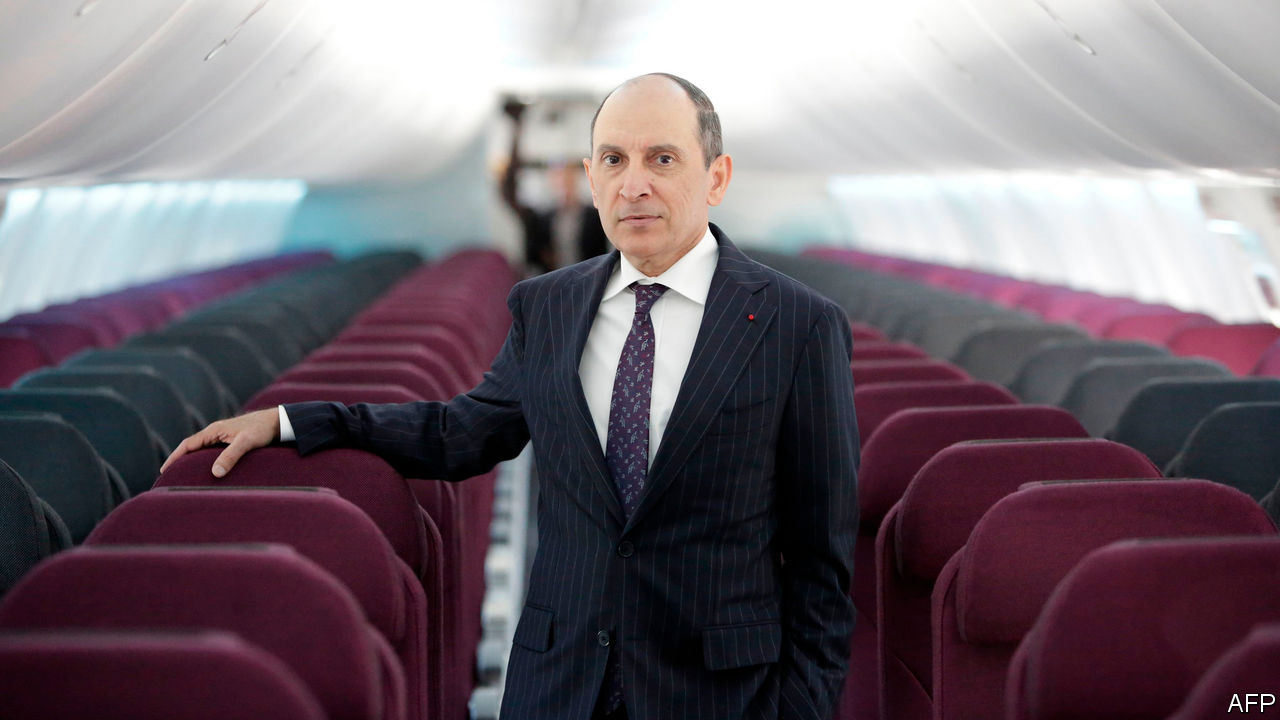
THE International Air Transport Association (IATA), a trade association for airlines, was founded in 1945 to promote the interests of carriers around the world. In recent years the airline cartel of old has been accused of being out of tune with the times, particularly by low-cost carriers such as Ryanair, which is Europe’s biggest. At this week’s AGM in Sydney the message from IATA was as dated as the organisation itself: women were not suited to running airlines. Akbar al Baker, the group’s new chairman and the boss of Qatar Airways, a Gulf carrier, told attendees that “of course”, his airline “has to be led by a man, because it is a very challenging position”. He later apologised for what he claimed was a joke blown out of proportion by the media. Yet this was not Mr al Baker’s first foray into misogyny. Last year he mocked American carriers for hiring “grandmothers” as flight attendants, boasting that the average age of his cabin crew is 26 years. Until recently, he forbade female staff from marrying or getting pregnant.
Gender equality in aviation is no laughing matter. Just 3% of the world’s commercial pilots are women. Even in relatively liberal countries such as Britain, the figure is 5%. Females are often the public face of the industry, but usually only in the form of low-ranking and poorly-paid cabin crew. Many airlines glamorise their female flight attendants, imposing strict makeup and beauty regimes and encouraging them–however subtly–to act subserviently. The “Singapore Girl”, a marketing slogan adopted by Singapore Airlines, is the best, but by no means the only, example. Talking to staff, it is easy to find female cabin crew who defend their employers and say they enjoy their jet-setting lifestyle. It is much harder to interview the immeasurable number of girls and women turned off career-building in aviation altogether. Just six of IATA’s 280 member airlines, or 2%, have female chief executives. By appointing two women to its 31-member board, IATA is actually over-representing women.
For an industry that epitomises technological advancement and modernity, this gender disparity is surprising. IATA convened a panel to discuss the issue at its AGM. But despite at least four female chief executives being present at the conference (the bosses of Rwandair, Air Namibia, Iran Air and Flybe of Britain), all six of the speakers were male. IATA itself is not to blame for gender inequality. The organisation cannot force its members to hire and promote women. However, it can find a chair who will take the issue seriously. By appointing Mr al Baker to this privileged role, the airline industry is telling the world that women’s rights is a topic to be joked about by middle-aged men in suits.
-
Trump’s man in Germany
-
The Trump administration joins a lawsuit to shred Obamacare
-
People going on stag and hen dos are disrupting flights too often
-
The problem of masculinity, in men’s words
-
Oil executives seek atonement at the Vatican
-
Why athletes vanish
Source: economist
Aviation’s most outspoken boss thinks women cannot do his job